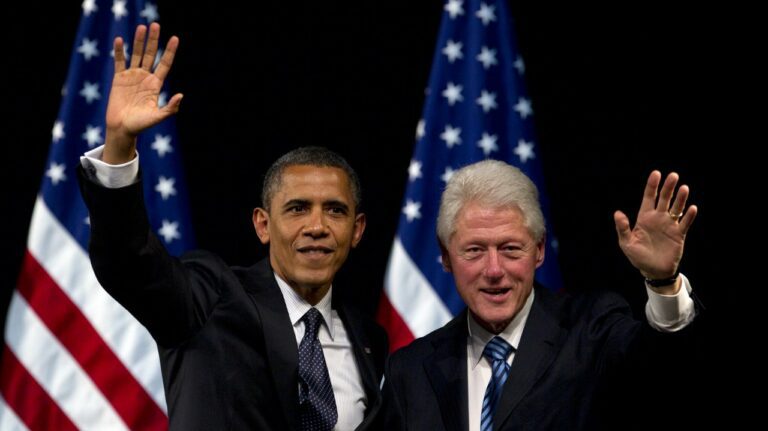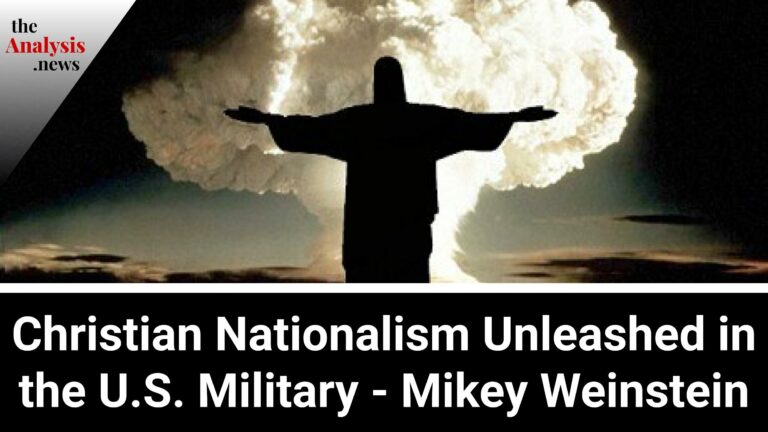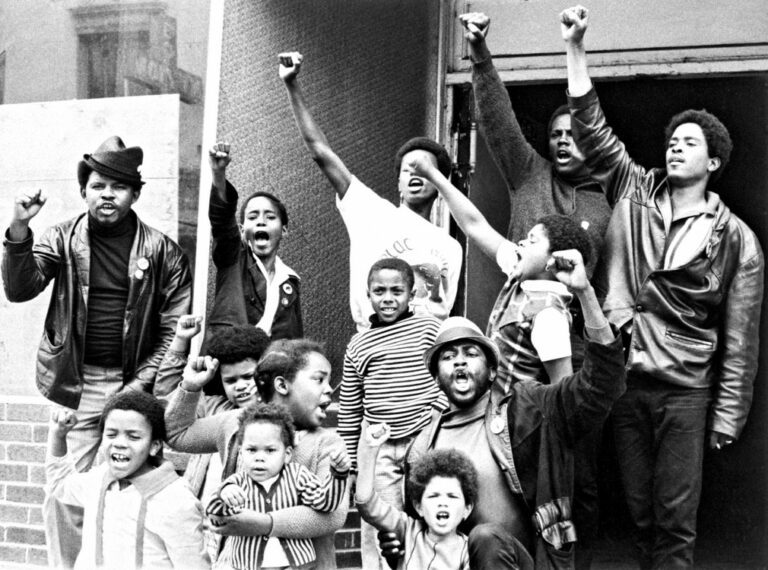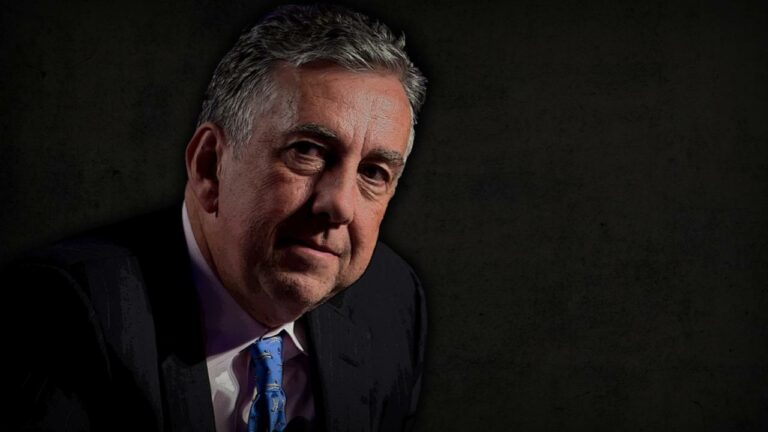Hitler ended the German nuclear weapons program in 1942 when told it could end life on Earth—the Americans were willing to take the risk; since the end of WWII the Cold War was to a very large extent, from beginning to end, a marketing campaign for subsidization of the aerospace industry, says Daniel Ellsberg on Reality Asserts Itself with Paul Jay. This is an episode of Reality Asserts Itself, produced October 31, 2018, with Paul Jay.
STORY TRANSCRIPT
PAUL JAY: Welcome back to Reality Asserts Itself on The Real News Network. I’m Paul Jay. And we’re continuing our discussions with Daniel Ellsberg. Thanks for joining us again.
The beginnings of the American nuclear weapons program was based on the intelligence that the Nazis, Germany was developing the bomb themselves, and it became this great race.
DANIEL ELLSBERG: Wait, not intelligence. Essentially assumption. It was a plausible assumption, but there was no direct intelligence on it, really, at all. It was quite plausible, because it was German scientists who had first discovered the fission of uranium in 1938, late in 1938, and German scientists who realized that this was, in fact, fissioning of uranium at that point. And the German scientists were, in general, somewhat ahead of anybody else at that point. And given that they were working for Adolf Hitler, it was very plausible to assume that they would go for a crash program in nuclear weapons. It was wrong, however. That was an assumption, it was not based on real intelligence.
PAUL JAY: And then there came to a point, and I don’t remember the year, when there actually was some intelligence that the program had existed, but then had been stopped.
DANIEL ELLSBERG: Ironically, we now know it was essentially stopped in June of 1942, exactly, by coincidence, the time when the American project was taking off in the Manhattan Project- so-called Manhattan Project. Scientists gathered together in June and July in Berkeley, California to discuss not only an atomic bomb, a fission bomb, but a possible H-bomb. Edward Teller, the leader of the, father of the H-bomb, brought that possibility up from the very beginning.
At that very meeting there was another worry they had, Teller and the others. A fission bomb might not only serve to ignite a fusion bomb, a hydrogen bomb, it would be a thousand times more powerful. It might ignite the nitrogen in the air and the hydrogen in the seas, and in one flash- a tiny, micro part of a second, one flash- the world would become a barren rock. No life whatever on it. No microscopic life, either, essentially. Everything gone. And they couldn’t rule out that possibility.
One of the most leading scientists, Hans Bethe, thought no, that can’t happen. Others, almost no one else, was that sure. And as late as the Trinity test in 1945, there was still considerable concern that this was a possibility. A very remote possibility, most thought. Some said even three in a million, a figure almost out of the air. The most advanced experimental physicist at that point, Enrico Fermi, who’d been critical in the development of the bomb up till then, had a very different conception. He went over and over the calculations. But his worry was they had missed some effect; that there’d be some interaction in this totally unprecedented event on the world- there hadn’t been a fission explosion- that would have effects that they had missed. And he thought the possibility of that was, like, 10 percent. And yet he went ahead. The night of the explosion, he offered bets. He said, I can offer odds now- or make book, as he put it- on whether New Mexico will be incinerated, or the whole world. Two different bets. And that was when-
Now, I mention that because at the very same month, we now know, Speer, the head of armaments production in Germany, and scientific work on this, was revealing to Hitler that yes, an atomic bomb was possible. But probably not in the short timetable that Hitler wanted to end the war, within three years. And it would take longer than that and more uranium than turned out to be necessary. And he also explained what Heisenberg, the German, great German physicist, had explained to him about the possibility of what was called atmospheric ignition. And Speer reports Hitler was not at all thrilled by the idea that he would preside over the ending of life on earth. And he went on to say, with his suspicion of scientists, these mad scientists probably will develop the means of burning everyone, burning everyone on Earth. But he said, not in my lifetime. This was in ’42. Actually, Hitler committed suicide in May of 1945, just months before Enrico Fermi was making his book on 10 percent chance that it would all go. Just exactly what Hitler had feared. But strikingly, that was a factor in Hitler’s mind not to go ahead with it.
PAUL JAY: But the American scientists that go ahead and do it in full, in full-
DANIEL ELLSBERG: I think that was, by the way, outrageous in view of Enrico Fermi’s well-founded fear.
PAUL JAY: But they go ahead because they think the Germans are about to—
DANIEL ELLSBERG: Well, by that time, remember, they go ahead when Germany has been defeated. Germany was defeated on May 8. The Trinity test was July 26.
PAUL JAY: But the work to develop the bomb continues.
DANIEL ELLSBERG: They did develop, they chose to develop. But you could develop and not test. It’s the test that was going to blow things up.
PAUL JAY: In your book you say that they do this in the full belief that Hitler is developing a bomb.
DANIEL ELLSBERG: Till May. Till May. But after May 8 that was no longer a factor. And actually, the British intelligence- and we had our own intelligence team also, but the British were scouring Germany for nuclear physicists and any evidence there had ever been a program. By the end of, by actually the late summer of 1944 and early fall, Chadwick, head of the British program, visited Los Alamos and told his former worker, colleague, Joseph Rotblat, a Polish immigrant, that the British had decided there was no German program. And that was true. There had not been since 1942. That’s the fall of ‘44.
Rotblat, then, who had pursued this only, as you say, for fear that the Germans would get ahead of us, and the need as he saw it then to deter them, to be able to respond, to be able to win the war if necessary, he had worked on it. But if there was no German program, he felt this is a danger to civilization, this program, of which I will not be part. So he asked to leave, to leave the program. They didn’t want it- in the end, the way it came down to under fear, threat that he would be deported and possibly prosecuted if he told his colleagues what his former boss Chadwick had told him, why he was leaving the project, he would be punished. He would be deported, possibly prosecuted. So he didn’t tell.
I’ve often thought, having written that, about that in the book- and I knew Rotblat later, who accepted the Nobel Prize for Peace for the Pugwash Conferences that he had initiated later, much later. But I knew him in the last years of his life. Very impressive person. And I’ve often thought had he violated that oath, and told his colleagues- it wasn’t an oath. Violated that threat. That if he defied it and told the others, they would have started, undoubtedly have started thinking in the fall of ‘44, rather than May, after the fall of Germany, what should be done with the bomb, and how should it be controlled, and how should its risk be controlled. The Franck Committee, including Leo Szilard and Eugene Rabinowitz, decided in May there should be no test, at least without Russian participation, making them partners in the deal rather than get into an arms race. And certainly should not be used on the Japanese, even if that would save American lives, because they said that would make a nuclear arms race with the Russians inevitable. There would be thousands of weapons more powerful than they were then able to achieve. All of this came true. And all of these people knew that an H-bomb lay just behind that; that with the fission bomb you had the trigger for a fusion bomb, an H-bomb, a thousand times more powerful. And they thought that was essential, to make every effort to head that off that process.
They were too late. The decision was essentially taken by that time. Their advice was shunted aside. It never got to Truman, set up through channels- General Groves, in charge of the project, sat on it till essentially everything was-
PAUL JAY: Sat on what?
DANIEL ELLSBERG: Sat on their recommendations that for long-term reasons of the world, civilization, you should not undertake the unilateral extermination by this weapon; use this weapon as a weapon of war, and of policy. Truman never got such advice. No one gave him that long-term advice. In fact, no one, with a couple of possible exceptions, really urged not to drop the bomb. There was no decision making here. It was inevitable they would use the bomb if it became available before the war ended. And they wanted to make sure the war did not end before it was used.
The reason, the basis for saying that is that a very widespread recommendation that the terms be offered to the Japanese directly, which we were prepared to offer, and which we did, in the end, did offer after the bomb, that they could keep the imperial institution, keep the Emperor- which we preferred, as an instrument of our own policy. And second, that the Russians were coming in, ending the Japanese hopes that the Russians would join them, or at least stay neutral, until August 8 when they did actually come in. Many people recommended that they do that.
Why did Truman and-
PAUL JAY: Before we go there, I want to just nail this first part of the story. In your book you tell the story how the scientists working on the Manhattan Project believe they were in a race against Nazi Germany, who was going to get the bomb first. They had visions that if Hitler had the bomb, he would drop it on the United States. At what point does American intelligence, does the American government at the highest levels, when do they know that there is no Nazi bomb, but they don’t tell the scientists?
DANIEL ELLSBERG: The British had concluded that science by the fall, early fall, of 1944. They certainly shared their beliefs with American intelligence. But when having told Joseph Rotblat that at the Manhattan Project, he did not tell the other scientists, and I’m not aware of whether any of them knew it later. One of them, a man named Wilson, actually, I was talking to him many years later. And on the phone he started crying, and said, I feel ashamed. I’ve never never been able to justify myself, that I did not quit when the Germans were out of the war; that I continued to work, as they all did, except for Rotblat. This was now against a country that they knew did not have the bomb. They never imagined that Japan had that capability during the war. And second, in vague terms, to the extent that Japan was going to be defeated without the bomb.
Now, they did not know what the leaders in Washington did know; that Japan was not planning- the high leaders, the war council- were not proposing to fight to the death as soldiers had done on Okinawa, or Iwo Jima. On the contrary, they were trying to achieve surrender terms through Russia, and they hoped that Russia would intercede, perhaps by bribing them with islands and parts of Manchuria that they could keep, to enter on their side. We knew the Soviets were coming in on our side, but we kept that secret from the Japanese. Most people believe that, in the government, that had they told the Japanese that we would offer to keep the Emperor and that the Russians were coming in- they couldn’t be sure that would end the war, but they thought it might very well- and they proposed doing that even before Potsdam, but definitely at Potsdam, by which time the Okinawa campaign was over.
The Soviets wanted to announce then that they were coming in. We refused that. Any measure that might have ended the war earlier was rejected, the bomb not being quite ready. Now, I wouldn’t say there was definite proof that this was a major motive for keeping the war going. It’s certainly consistent with a desire not to end the war until the bomb had been demonstrated to Congress, but above all, to the Soviets.
PAUL JAY: To begin the next period of post-war history with a shot across the bow.
DANIEL ELLSBERG: As Blackett put it, he said this was really the first battle of the Cold War, rather than the last act of the World War II. Well, it was both, strictly speaking. After the bomb, both bombs, had been dropped, the Air Force wanted to continue to show their major role in the ending of the war. And Hap Arnold sent a thousand planes, sent a 1000-plane raid, over Japan on August 14, knowing that the Emperor was about to surrender, or issue a surrender. And the surrender came before the planes had returned from Japan. That came after the bombs. So the Air Force was very concerned that at the end of the war they wanted to be an independent Air Force, free of the Army, which had control of them till then; to have a very large Air Force, and in particular to have a large enough industry to support a major R&D, research and development program, so that the Air Force would always have superior weapons, would have the most advanced weapons. And for that you needed a large R&D effort. And for that it turned out you needed something much more than commercial sales of airplanes. You needed government purchases to keep these firms profitable.
Actually, since I wrote the book, I’ve been researching that more than I had before. And realized- various books I could give, one by Kovski and some others- that in ’46 and ’47, firms like Boeing and Lockheed and others, which depended entirely, had depended on sales to the government, found they could not survive, really, in the post-war period simply on commercial projects. Ford and GM, who built most of the planes, went back to building cars. But Lockheed and Boeing found that the commercial aircraft airline industry didn’t provide them enough sales and purchases really to stay solvent. And so they began lobbying very heavily in ’46, ’47. Finally in ’47 and ’48 got enormous increases in government contracts at that point. And as I say, from the very beginning, that had to be against Russia.
The Cold War had not officially begun at that point, but only Russia had enough targets to justify a larger force at that point. I do think, in other words, that from that time on, I now think- and it’s not in my book. It wasn’t as clear to me even a year ago. I would now say that the Cold War was to a very large extent, from beginning to end, a marketing campaign for subsidization of the aerospace industry.
PAUL JAY: In the next segment of our interview we’re going to talk about the mentality where you can have a strategy based on the slaughter of millions of people and call that a military plan. And Daniel makes a very interesting point that the beginnings of this sort of modern thinking actually is the British in 1942, and the mass firebombing of Germany. So please join us for Reality Asserts Itself series with Daniel Ellsberg on The Real News Network.






